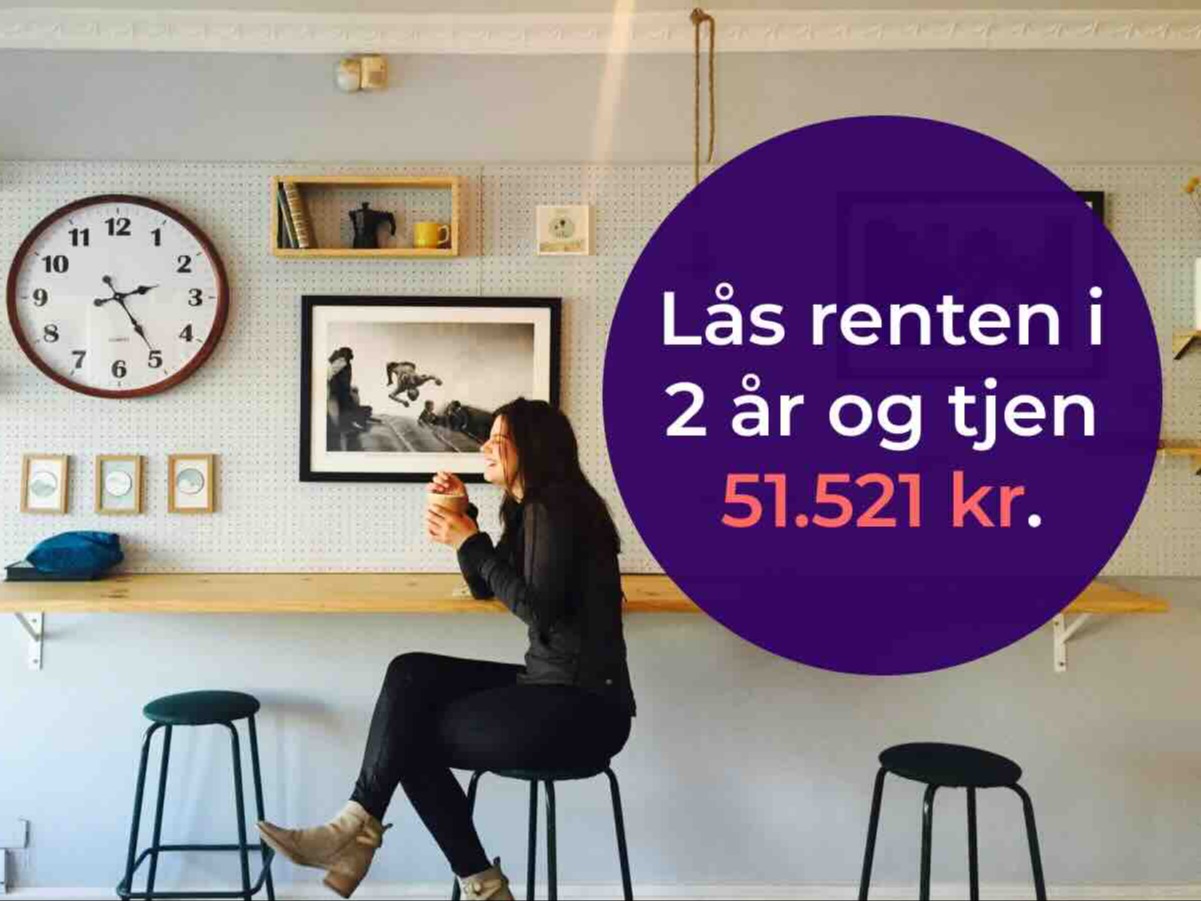
02/20/2024
Lock your savings interest rate before it’s too late!

A savings account may be the right solution if you want security and stability while earning a return on your savings.
But what exactly is a savings account, and what should you be aware of before opening one? Read on to learn more about the benefits of a savings account.
A savings account is an account where you can get an attractive interest rate on the money you have in the account. It's one of the simplest and safest ways to get a return on your money. The account is, therefore, especially relevant for those who have free funds that you won't need in the near future.
Unlike a salary or budget account, a savings account is not intended for frequent transactions. Instead, such an account aims to 'park' your money and let it grow steadily. With a savings account, you earn a return on your savings, helping you avoid inflation 'eating away' at your money.
In a savings account, your money will usually be tied up for a specific period, which can range from as short as one month to several years, depending on the account's terms and conditions. Typically, there is a direct correlation between the length of the fixed term period and the interest rate you are offered. The longer you lock in your money, the higher the interest rate you will typically receive. You can withdraw the money before the end of the lock-in period, but there will be a cost associated with this.
If it is likely that you will need to withdraw the money during the fixed term period, it is most likely better to keep your money in a regular deposit account. This way, you always have access to your money without any costs, should the need arise.
There are many different reasons why opening a savings account can be a good idea. We have gathered the main reasons here.
Security: Before you open a savings account, it's essential to check if your funds are covered by the Deposit Guarantee Scheme, which protects deposits in your bank accounts up to 100,000 euros (approximately DKK 745,000). This means that deposits exceeding 100,000 euros (approximately DKK 745,000) are not covered by the deposit guarantee if the bank becomes insolvent. If your savings exceed DKK 745,000, you should spread your money across accounts in multiple financial institutions. The deposit guarantee applies per account holder as registered by the bank. This means that if you have DKK 745,000 deposited in two different savings accounts at the same bank, only one of the accounts is protected.
Ease of access: Although the money may be tied up for a certain period, you can access it relatively quickly for a fee if needed. This provides some flexibility in case of unforeseen expenses or emergencies.
Interest rate: Although the interest rate on a savings account is generally lower than on more risky investments like stocks, it still provides a decent return on your savings. This is especially useful for short-term savings or as part of a diversified portfolio.
Building an emergency fund: A savings account is an excellent way to build an emergency fund that can be used for unexpected expenses or sudden life changes without needing a loan.
Therefore, a savings account is optimal if you wish to avoid investing in stocks and bonds due to the associated risks but still want to earn a return on your money.
If you have, for example, savings of DKK 100,000, you will earn DKK 3,000 in interest income in the first year if the deposit interest rate is 3.00%. If you lock the money in for two years, you will earn an additional DKK 3,090 in the second year due to compound interest. This means that on a 2-year savings account with a 3.00% interest rate, you earn DKK 6,090 with a deposit of DKK 100,000.
Before you open a savings account, there are several important things you should consider and be aware of:
Lock-in period: When opening a savings account, you should know whether it has a fixed term period. If there is a lock-in period, you still have the option to withdraw the money before the end of the period, but you often need to pay a fee, known as a withdrawal fee, based on the amount you withdraw. This fee varies typically from bank to bank and depends on the chosen account's lock-in period. However, many savings accounts do not have a lock-in period. Opting for a savings account without a lock-in period can be a wise decision if you anticipate needing the money in the near future.
Interest rates: Since it's possible to open a savings account at a bank different from where you have your regular checking account, it's essential to research the deposit interest rates offered by various banks. The interest rate level significantly impacts the return you earn on your savings. The higher the interest rate on your savings account, the more money you earn on your deposit.
Minimum deposit: Some savings accounts require a minimum deposit to open the account, ranging from DKK 25,000 to DKK 100,000.
Fixed or variable interest rate: You should also consider whether you choose a savings account with a fixed or variable interest rate. With a variable interest rate, the bank reserves the right to change the rate without prior notice, whereas a fixed rate remains the same throughout the chosen period for your account. A savings account with a fixed interest rate typically offers a higher return than a variable rate. However, the higher interest rate often involves committing your money for a period. Therefore, it's essential to carefully consider when you expect to need the money before deciding to lock it in. If you might need the funds from your savings account before the fixed-term period runs out, opting for an account with a variable interest rate where you can withdraw money on short notice is sensible.
Fees and costs: You should also be aware of any administrative fees and miscellaneous expenses associated with opening and maintaining a savings account.
You can get a comprehensive overview of and compare the interest rates and terms of savings accounts from different banks right here.
By opening a savings account at kompasbank, you get more out of your money and contribute to creating growth and jobs in Denmark.
The deposits from private individuals – like you – enable us to provide financing to small and medium-sized enterprises. In this way, your savings at kompasbank create better opportunities and new jobs, benefiting Danish businesses and society.
For further information, please contact
Kasper Kankelborg
Head of Communication & Marketing